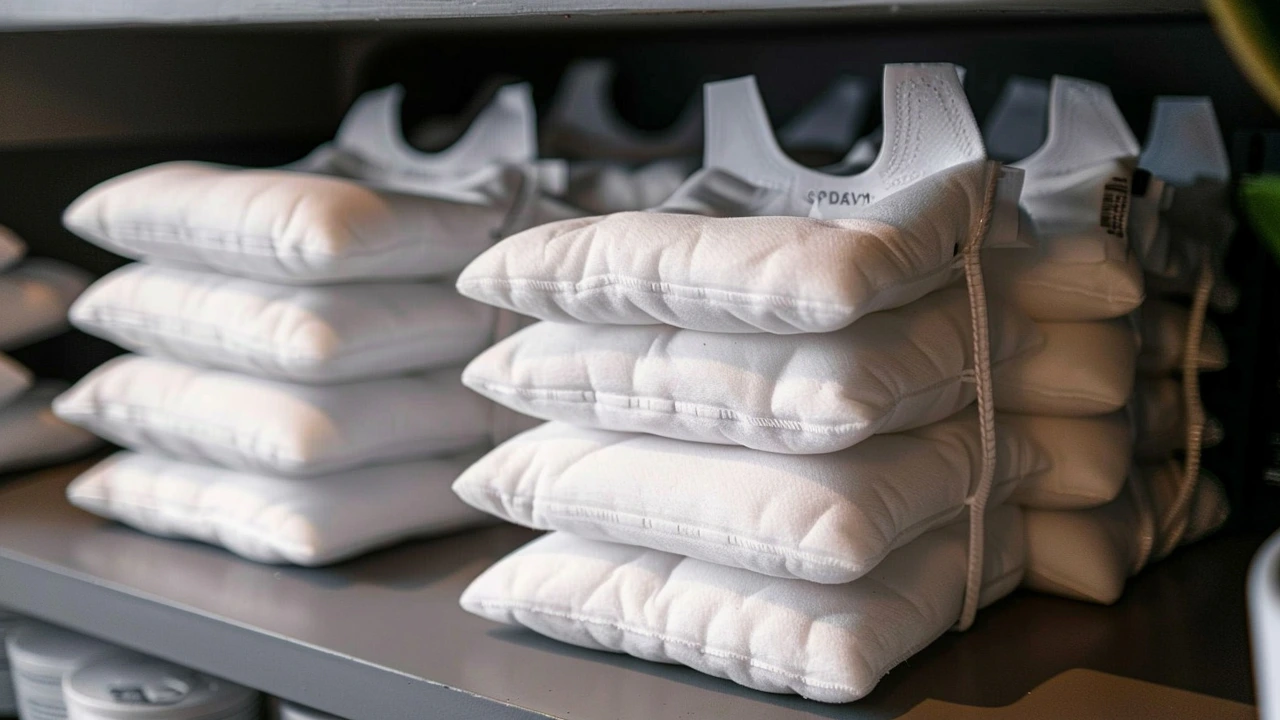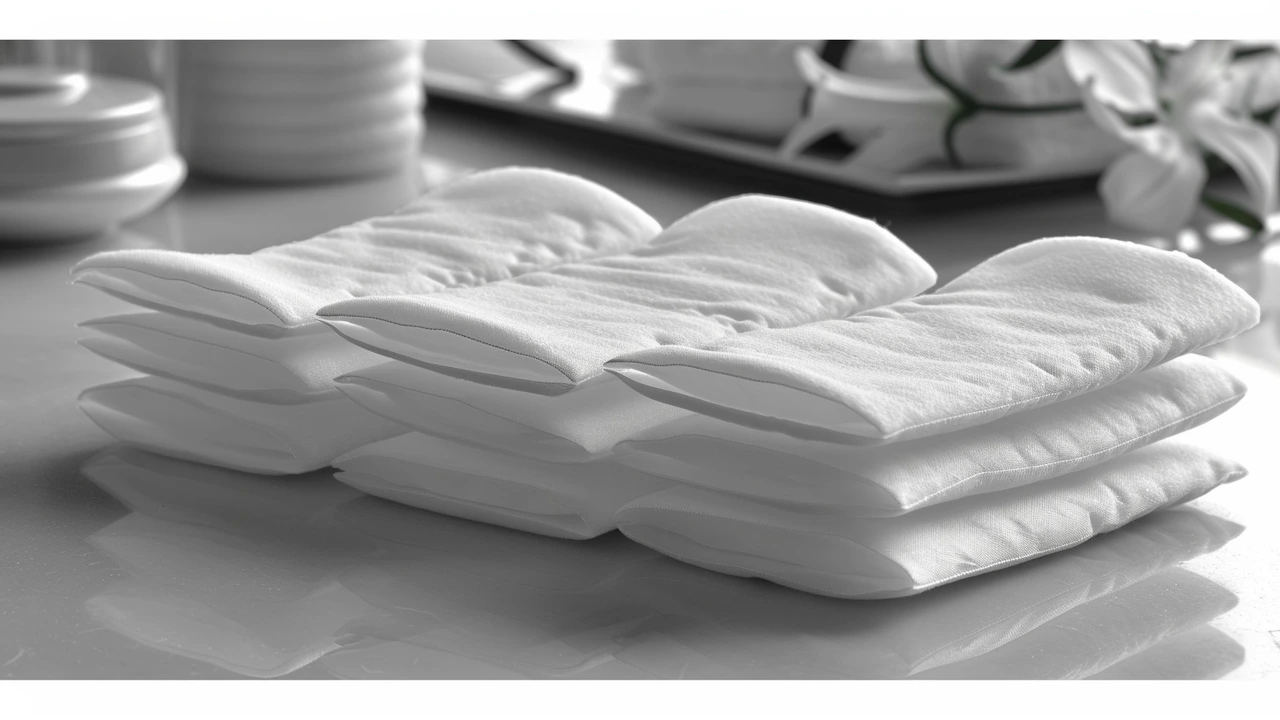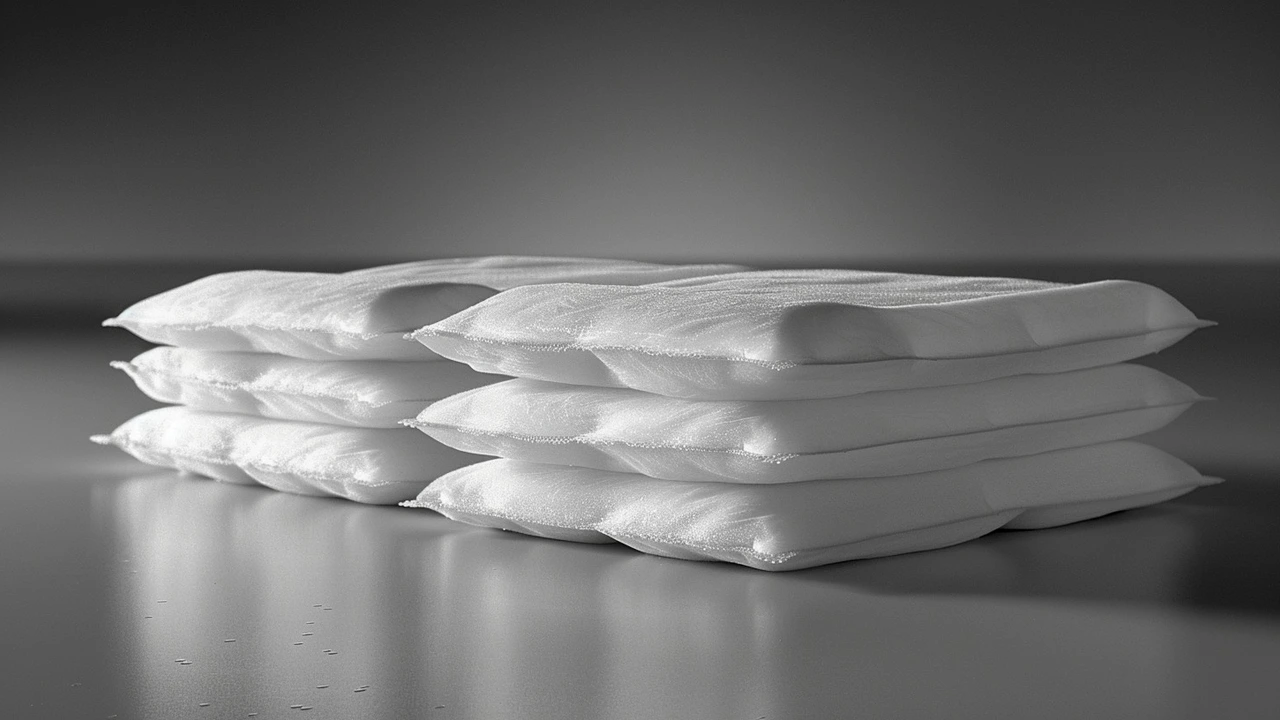Menstrual Hygiene Day Inspires Girls to Develop Creative Sanitary Pad Solutions
Menstrual Hygiene Day wasn’t just another day on the calendar this year. Celebrated on May 28, it became a rallying cry for girls around the world to turn their creativity and resourcefulness into innovative solutions for sanitary pads. As many girls in Kenya and other regions face challenges accessing affordable and hygienic menstrual products, this day brings to light critical issues that have often been shrouded in silence and stigma.
According to a United Nations report, one in ten girls in Africa misses school during her period due to a lack of sanitary products. In Kenya, a startling study by the Ministry of Health found that 65% of women and girls couldn't afford sanitary pads. As a result, many resort to using unhygienic alternatives like rags, grass, or even paper, which pose significant health risks including infections and long-term reproductive health problems. These makeshift solutions are not only uncomfortable but also unsafe, exacerbating the already tough life circumstances for these girls.
Recognizing the urgency of the matter, various organizations are now taking concrete steps to promote sustainable menstrual hygiene management. The government, alongside other bodies, is advocating for the use of reusable sanitary pads and other eco-friendly alternatives. These efforts aim to bridge the gap in accessibility and affordability, making it possible for girls to continue their education uninterrupted by their menstrual cycles. Education and awareness campaigns are being ramped up to break the taboo surrounding menstruation, encouraging open conversations in schools, communities, and households.
Efforts to Foster Creativity and Resourcefulness
This year, the theme of Menstrual Hygiene Day focused not just on raising awareness but also on inspiring action from the younger generation. Girls were urged to think outside the box and come up with innovative solutions for sanitary pads. This call to action aims to make menstrual products not only more accessible and affordable but also environmentally friendly. Reusable pads, made from sustainable materials, are being championed as a viable solution.
The initiative has already yielded some promising ideas. In some Kenyan schools, girls are learning how to make their own reusable pads using readily available materials. Workshops and training programs teach them the skills necessary, turning what was once considered a problem into an opportunity for empowerment. These programs not only provide girls with a much-needed sanitary solution but also impart valuable life skills and a sense of independence.
Moreover, the involvement in such initiatives fosters a sense of community and collective responsibility. Girls who take part in these projects often go on to train others, spreading the knowledge and extending the impact. This ripple effect not only addresses the immediate need for menstrual hygiene products but also gradually changes societal perceptions about menstruation.

Breaking the Silence and Stigma
For too long, menstruation has been a topic shrouded in secrecy and shame. This silence has contributed to the stigma and misinformation that worsen the challenges related to menstrual hygiene management. By encouraging open discussions and involving the community, Menstrual Hygiene Day aims to dismantle these barriers. It is crucial for parents, teachers, and community leaders to engage in these conversations to create an environment where girls feel supported and informed.
The significance of breaking this silence cannot be understated. When menstruation is openly discussed, it becomes easier to address the challenges and find effective solutions. Schools can provide better facilities, such as clean toilets and private changing areas, ensuring that girls feel comfortable attending school during their periods. Community efforts can focus on distributing sanitary products and educating girls about their menstrual health.
Empowering the Next Generation
Encouraging girls to lead the way in developing innovative solutions for menstrual hygiene not only addresses an immediate need but also empowers them to be active participants in their communities. This empowerment has far-reaching implications. When girls are educated and healthy, they are more likely to stay in school, perform well academically, and contribute positively to society. By taking control of their menstrual health, they boost their confidence and self-esteem, paving the way for future successes.
The impact of such empowerment extends beyond individual girls to their families and communities. Educated and confident women are more likely to influence positive changes, advocate for their rights, and inspire others. The initiative by Menstrual Hygiene Day is a step towards gender equality, as it provides girls with the tools and support they need to overcome barriers and achieve their full potential.

The Role of Technology and Innovation
In today's digital age, technology plays a crucial role in addressing menstrual hygiene challenges. Innovative apps and online platforms are being developed to provide girls with information about menstrual health, track their cycles, and connect them with resources. These technological solutions offer a convenient and discreet way for girls to manage their periods, especially in areas where access to traditional resources may be limited.
Moreover, social media campaigns and online communities are raising awareness and fostering discussions about menstrual health. By leveraging the power of technology, organizations can reach a broader audience and create a more informed and supportive community. Girls can share their experiences, seek advice, and learn from others, breaking the isolation and stigma often associated with menstruation.
Collaboration and Community Involvement
The success of Menstrual Hygiene Day and the initiatives it promotes relies on collaboration and community involvement. Governments, non-governmental organizations, businesses, and individuals all have a role to play in addressing menstrual hygiene challenges. By working together, they can create a comprehensive and sustainable approach to menstrual health management.
Partnerships between schools and organizations can facilitate the distribution of sanitary products and educational materials. Businesses can invest in the development of affordable and eco-friendly menstrual products. Community leaders can raise awareness and promote open discussions, fostering a supportive environment for girls and women. By combining efforts, the impact of these initiatives can be amplified, leading to lasting change.

The Path Forward
As we reflect on Menstrual Hygiene Day, it is clear that while significant progress has been made, there is still much work to be done. The challenges faced by girls in accessing affordable and hygienic menstrual products are deeply rooted and complex. However, the initiatives inspired by this day offer hope and a path forward. By encouraging innovation and open discussions, we can break the silence and stigma surrounding menstruation, promote gender equality, and empower the next generation of girls to overcome barriers and achieve their full potential. Together, we can create a world where menstrual hygiene is prioritized, and every girl has the opportunity to thrive.

Write a comment